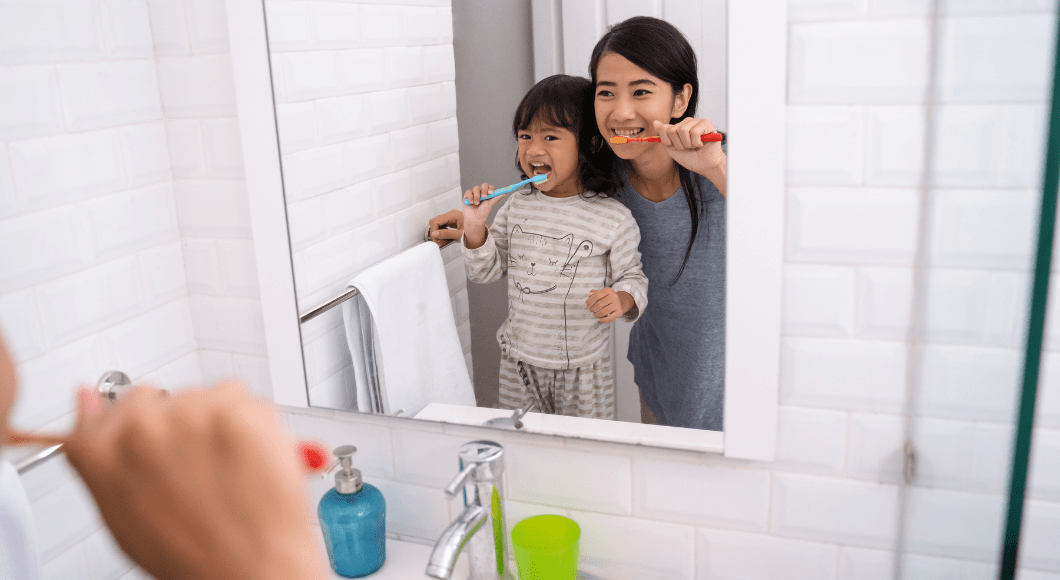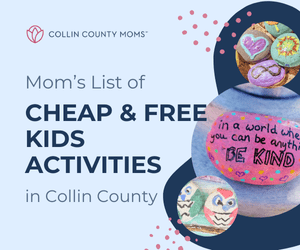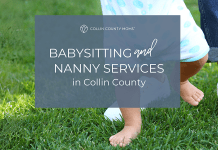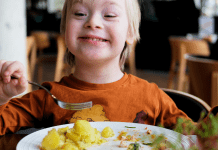I pull up in my minivan at the gas station pump. It takes three tries to get the credit card inserted correctly, and I drop my keys in the process.
What is wrong with you?
Or maybe I was late for pick-up, overspent at the store, and ate way more than I should have that day.
Get it together.
What about when I try a new dinner recipe, desperately trying to strike that balance between healthy and bland-but-not-too-bland for my picky eaters. Instead it’s an objectively gross-no-one-should-eat-this fiasco?
Why can’t you do anything right?
One day when I was visibly frustrated and internally berating myself, my five-year-old daughter said: “Mommy, it doesn’t have to be perfect to be good.”
Woah. Cue the slap-in-the-face, wake-up-call feeling. Her answer was a reality check for this:
Why do I speak to myself in a way I would never dream of speaking to my child? Why don’t I speak kindly to myself?

When she draws a family portrait for school, her third circle turns out more like a square. She drops her arms and declares, “Oh, that’s not what I wanted to do! Now it’s not right!”
Sometimes things don’t turn out how we want them to, and that’s okay,” I say. “It doesn’t have to be perfect to be good.”
>> RELATED READ :: Don’t Forget Your Audience, Mama: Creating a Healthy Body Image in Kids <<
Another time, she tries to show me a new dance move but collapses on the floor in frustration when it doesn’t go well.
“It’s your first time doing this,” I say. “No one is good at something the first time.”
When she has been working on a puzzle or a project for a while, and her tired brain gets upset when it just isn’t working, I say, “Sometimes things are just hard. Let’s take a break and try again later.”
Can you imagine if, when that circle turned out like a square or when the dance move didn’t work, I said to her, “What is wrong with you? Get it together. You can’t do anything right”?
Insert mind-blowing emoji, right?
 Why is it that we, as parents, extend grace to others so much more than we do to ourselves? It’s hard to be vulnerable and acknowledge our fight for self-esteem. But what if we’re not recognizing this opportunity to give ourselves grace? Why do we speak kindly to our kids but not ourself?
Why is it that we, as parents, extend grace to others so much more than we do to ourselves? It’s hard to be vulnerable and acknowledge our fight for self-esteem. But what if we’re not recognizing this opportunity to give ourselves grace? Why do we speak kindly to our kids but not ourself?
In her Parenting Manifesto, renowned researcher and writer Brene Brown acknowledges how we treat our children isn’t the only way they learn their worth. They also learn their worth from how we, the parents, treat ourselves.
>> LISTEN :: Let’s Get Real :: Episode 84 <<
Let’s start recognizing that harsh, judgmental voice in our heads. And call it out for the liar it is. Then, let’s replace that lie with a truth, and one of the best ways to do that is to think about what we would say to our children.
The more we do this, the faster we will recognize the unkind lies we tell ourselves, and the more kindly we will speak to ourselves. Because our kids deserve this, and so do we.













